
(Photo by Cindy Ord/Getty Images)
It’s one thing to be a best-selling novelist, but it’s another to be a best-selling novelist whose books also easily translate into successful films. Nicholas Sparks has achieved both since he published his first novel, The Notebook, in 1996. While his two follow-up books, 1998’s Message in a Bottle and 1999’s A Walk to Remember, were adapted for the big screen first, it was the 2004 feature adaptation of that first novel that established him as pop culture’s foremost purveyor of romantic drama. The Notebook helped launch the careers of then up-and-coming actors Ryan Gosling and Rachel McAdams, and it remains a cultural touchstone for thousands of fans.
This week saw the release of Sparks’ 20th novel, Every Breath, a romance about a chance encounter between two strangers in North Carolina that forces them to reexamine their lives and make some difficult decisions. He took some time out of his schedule to speak with Rotten Tomatoes about his Five Favorite Films, a couple of which might surprise those familiar with his work.
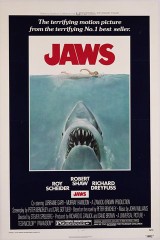
Let’s go with Jaws. I saw Jaws when I was about… I must have been nine years old. Of course, at the time it was the most terrifying film I’d ever seen. It kept me awake for days. It kept me afraid of the ocean for a while. It had me afraid of lakes in Nebraska, in case there were sharks there. I was nine years old.
But there are so many amazing things about that, on a historical level. That was the very first film that opened nationwide on the same day. As far as I know, prior to that, they would roll out films big cities to smaller ones, coast to coast. But this opened worldwide, which ushered in the era of the blockbuster. So it was groundbreaking in that regard, and of course, that is something that defines the entire movie industry today.
The interesting thing is that, 43 years later, the film holds up exceptionally well. The characters feel as fresh and original as they did so long ago. So well directed. The history of the making of the film and how challenging it was for Spielberg, and the broken shark and all of this, and all of the changes he had to make — none of those challenges are reflected in the quality of the film. So to me, that’s a fabulous, fabulous film.
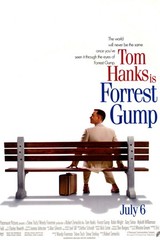
Forrest Gump. What I appreciated about that — I believe it ended up winning the best picture and an Academy Award for Tom Hanks, both of which were well deserved — but I just loved the interplay of putting him back into actual historical footage of meeting the presidents, and at the time it was so much fun to see that play out on screen. It captured entire eras and major issues, everything from racism in the south to the horror of the Vietnam War — the protests of the Vietnam War — to AIDS toward the end. And, of course, the theme, which is right up my alley, which is, “Hey, it’s about a guy who loves a girl forever.” [laughs] That’s a little bit like The Notebook in this regard. And yet, it was done in a way that I never would have considered doing. I believe it was Robert Zemeckis who directed that. It’s phenomenal.
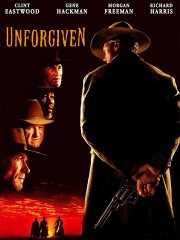
Let’s go with Unforgiven. Again, I believe that was an Academy Award winner. A number of things were so fantastic about that film. The Western genre had died — it had gone away by that time — and here comes Clint Eastwood, who was known for Spaghetti Westerns, which were of course Westerns often with Italian directors, or whatever the reason they call it that. And whether those were good or bad, they defined an era of filmmaking, a certain type of movie that came out three or four times a year, and then they vanished. And then in walks this guy who’d done that era and was a major star, a major, major star, and I believe he directed Unforgiven. How entirely different from any other Western we’ve ever seen. And you care for this guy who spends the entire film telling people he’s changed. He’s not the guy he once was. And then, just when you care about this character, you realize he’s the same guy he always was. When push comes to shove. It was a bit of a surprising ending. And yet, to me, resonates to the overall quality of the film. And it’s one that stays with me.
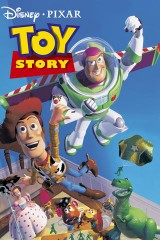
We’re going to go with number four, Toy Story. Of course, the first computer animated film. Wildly original in concept, in creation, in everything about it. And it is a kids movie that resonated with adults because you cover things like betrayal or jealousy, all set within this small, childlike world. It had me in stitches toward the end as they’re trying to catch the moving van and faces are blowing, and it all goes bad, and they light the rocket with Buzz’s helmet. They worked together to get back to Andy, get back to the box. And there was just something magical about that as a kids movie that felt entirely fresh at the time. And of course Pixar is… Have they ever done anything that’s not exceptional? Not that I know of, but this was the first. and we like to talk about computer animation, which was incredible and groundbreaking at the time, but if you look at the dialogue and the performances… Again, it’s Tom Hanks and Tim Allen, and all of the other characters. It was magical.
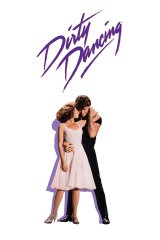
Finally, we’re going to go with a film that is so culturally relevant that as soon as I say it you’ll be able to quote at least one line from it. We’re going to go with Dirty Dancing. Because, come on, nobody puts Baby in a corner, right? Of course it’s been acted out, it’s been referenced in numerous films. It was in Crazy, Stupid, Love. This is the move that Ryan Gosling does to get the girls, right? And he and Emma Stone reenact this scene. So, you want to talk about a film that just had an amazing soundtrack, the performances were great, and it speaks to the confusion of teenagers growing up, but not in a, I feel like, a “loner” teenager way. There’s been a lot of teenage films where they feel like a loner. This is someone who liked her family, and she was a little irritated with her older sister as siblings tend to be, but she liked her dad and her mom, and when push came to shove at various points, she ran to her dad to help. There was something striking about how all of that worked together in a film that just made you feel good and want to dance and want to take someone to see, and then, how many years later, that film still holds up. And if you don’t believe me, go watch it. It still works.
Nicholas Sparks’ new novel, Every Breath, is available in stores this week.